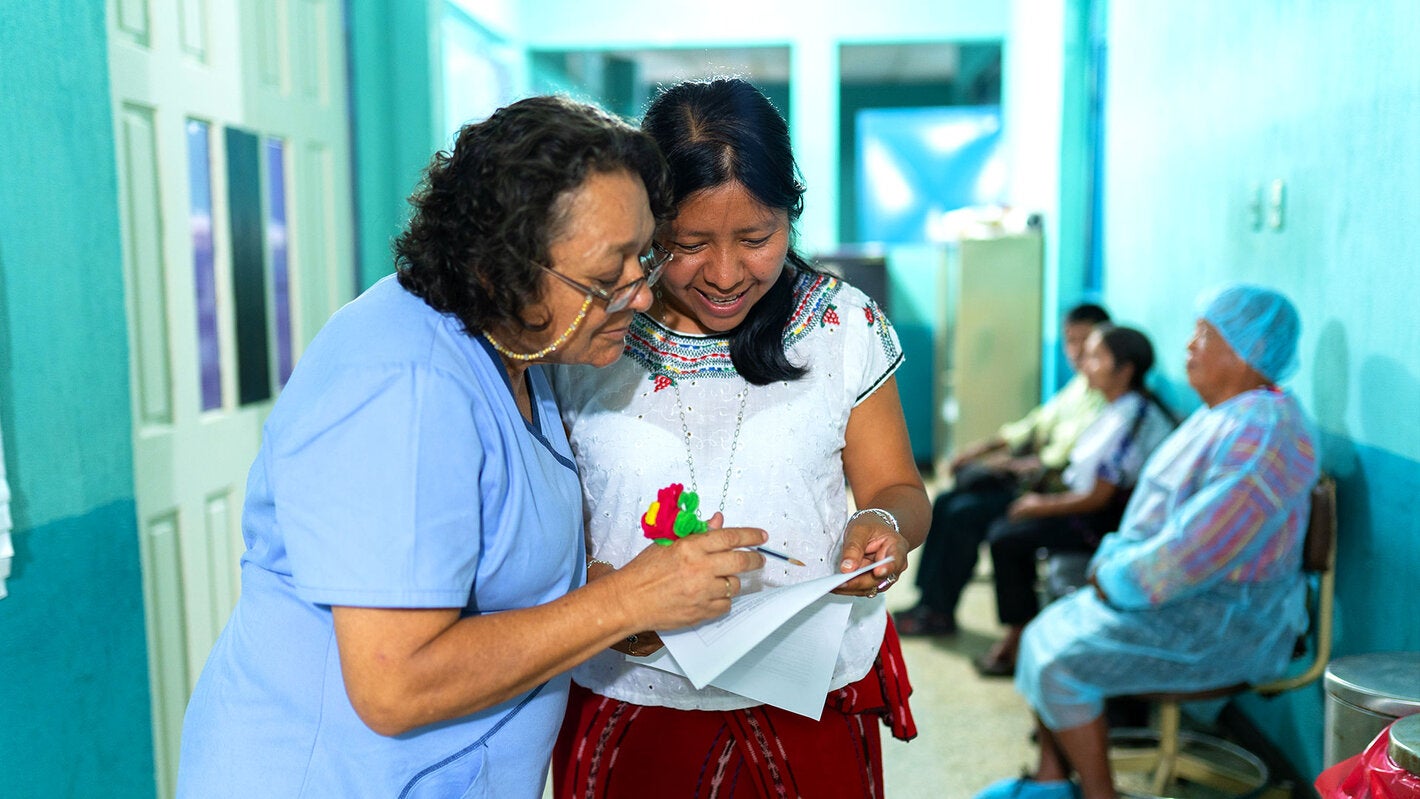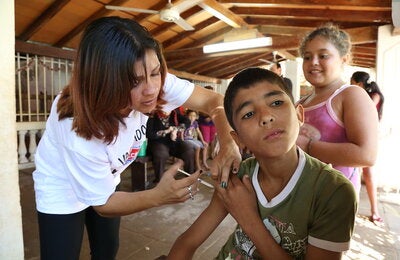
Pilot studies in El Salvador and Nicaragua show positive impact on new health professionals' confidence in their abilities to promote change
Washington, D.C., 29 August 2013 (PAHO/WHO) — A special report published in the latest issue of the Pan American Journal of Public Health shows that health care professionals can be empowered through human rights education to protect and promote patients' reproductive and other health rights and advocate for their own human rights as providers.
The study's conclusions are based on two pilot studies conducted in Nicaragua and El Salvador as part of the Human Rights Reproductive Health Education (HRHE) initiative, sponsored by Ipas Central America, a nongovernmental organiza¬tion based in Managua, Nicaragua. Forty nursing students and 18 recently graduated medical doctors participated in the initiative, which was designed to improve providers' knowledge about human rights, change attitudes and norms, and strengthen specific service-delivery skills.
According to the initiative's conceptual model, providers' belief in their abilities to protect and promote human rights is key to increasing motivation and intentions to act. A baseline survey revealed that only 40% of medical and nursing students in Nicaragua and El Salvador were confident in their ability to act when facing human rights violations.
After participating in human rights education workshops, nursing students reported increased belief on their own ability to take action in a human rights violation scenario. Additionally, students became more confident that they could "advocate for their own rights as health care providers to supervisors."
Evidence from one of the pilot studies showed that recent medical school graduates rely on support from their colleagues when advocating for changes in service delivery. New doctors also became more motivated to protect patient's human rights due to a better understanding of the "social determinants that underlie reproductive health conditions."
Human rights education did not appear to affect participants' confidence in their own ethical decision-making or their ability to identify human rights violations. However, the study concludes that training programs are needed to "increase provider's motivation and ability to protect and promote human rights, confront contextual barriers, and cultivate a sense of pride in their responsibility as front-line defenders of human rights."
The HRHE initiative was originally launched by Ipas Central America after preliminary research showed that medical and nurs¬ing school administrators, faculty, and students from the University of El Salva¬dor (UES) and the National Autonomous University of Nicaragua (UNAN) in Managua had a strong interest in incorporating human rights into train¬ing programs and suggested that schools were not adequately preparing students to fulfill their role in safeguarding pa-tients' rights.
Other articles in the current issue of PAJPH:
- Comparison of national health research priority-setting methods and characteristics in Latin America and the Caribbean, 2002-2012
- Socioeconomic status, perception of environment, and their association with self-rated health status among women in Bogotá, Colombia
- Validity and reliability of the International Physical Activity Questionnaire among adults in Mexico
- Inoculation message treatments for curbing noncommunicable disease development
- Using spatial analysis to identify areas vulnerable to infant mortality
- Feasibility of road traffic injury surveillance data sets in the Dominican Republic
- Core competencies in public health: a regional framework for the Americas
- PRISMA-Equity 2012 Extension: Reporting Guidelines for Systematic Reviews with a Focus on Health Equity
- Changing patterns of migration in Latin America: how can research develop intelligence for public health?
- The Pan American Journal of Public Health (PAJPH) is an open-access, peer-reviewed monthly journal of PAHO/WHO. Its mission is to disseminate scientific public health information to strengthen national and local health systems and improve the health of the peoples of the Americas.
Links:
- Incorporating human rights into reproductive health care provider education programs in Nicaragua and El Salvador
- Pan American Journal of Public Health, July 2013, Vol. 34, No. 1



